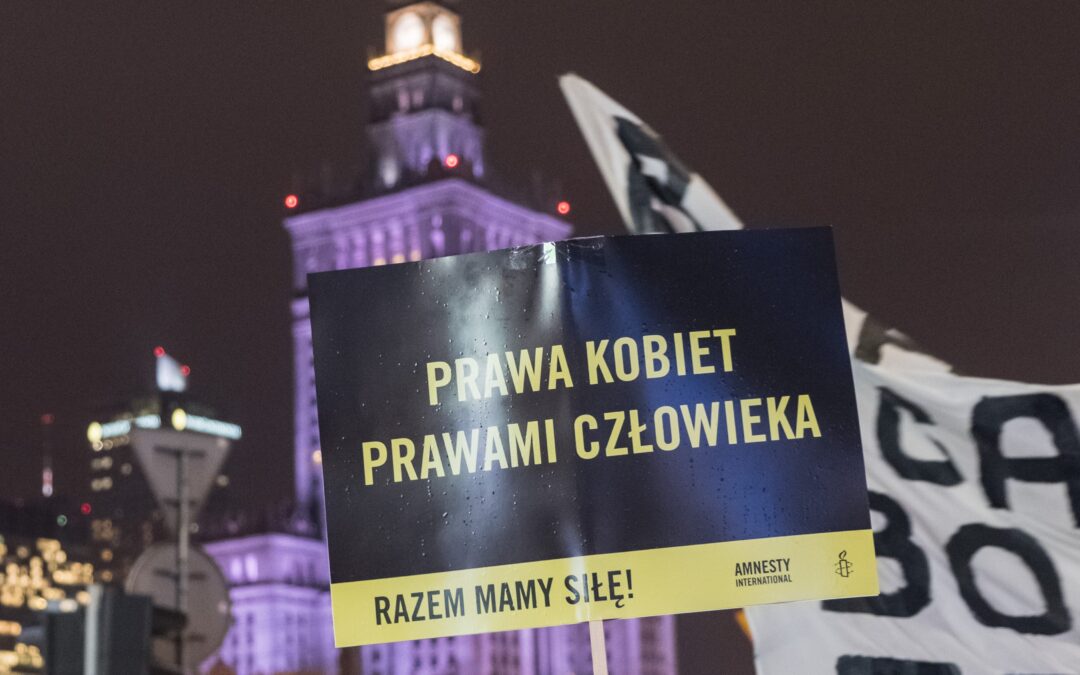Poland’s prime minister has criticised Amnesty international, accusing it of only defending people with a certain ideological perspective. He also likened the NGO’s controversial treatment of Russian opposition leader Alexei Navalny to how his own late father, an anti-communist activist, was treated by Amnesty in the 1980s.
“A[mnesty] I[nterational] has long ceased to be a normal organisation defending freedom of belief,” wrote Mateusz Morawiecki. “[It] only defends views of a certain ideological colour.”
Morawiecki’s comments came in response to Amnesty last week making a U-turn on its earlier move to strip Navalny of “prisoner of conscience” status because of remarks he had made that the NGO regarded as “hate speech”.
The initial decision, made in February, had been welcomed by state-linked media in Russia, where Navalny was jailed a month earlier following his return to the country after treatment in Germany for poisoning with the Novichok nerve agent.
In a statement on Friday, Amnesty admitted that it had made a mistake and would reinstate Navalny’s status as a prisoner of conscience. It also “apologised for the negative impacts this has had on Alexei Navalny personally, and the activists in Russia and around the world who tirelessly campaign for his freedom”.
Amnesty returns prisoner of conscience status to @Navalny. “Amnesty International made a wrong decision, which called our intentions + motives into question at a critical time, apologises for the negative impacts this has had on Alexei Navalny personally” https://t.co/GF9Mx3XoBS
— Oliver Carroll (@olliecarroll) May 7, 2021
In his statement, published on Facebook, Morawiecki said that “the case of Navalny is not an isolated one”. He noted that in 1988, when his own father, Kornel Morawiecki, and a colleague, Andrzej Kołodziej, were arrested by the communist authorities, Amnesty also refused to give them prison of conscience status.
The NGO justified this at the time by the fact that Fighting Solidarity, the anti-communist underground organisation founded by Morawiecki senior, did not exclude the possibility of mounting an armed struggle to regain Poland’s independence.
Mateusz Morawiecki himself as a youth took part in anti-communist activity, including printing, writing for and distributing underground publications, painting inscriptions on walls, and pulling down communist flags. He was detained and interrogated a number of times by the security services.
Kornel Morawiecki has died aged 78 following a battle with pancreatic cancer. In the 1980s he was the leader of Fighting Solidarity, an underground anti-communist organisation. In 2015 he became an MP and was also the father of the present prime minister https://t.co/nugMPDHsZO
— Notes from Poland 🇵🇱 (@notesfrompoland) September 30, 2019
The prime minister also accused Amnesty of bias against the current national-conservative government that he leads. He noted that the NGO’s Europe director, Nils Muiznieks, last year spoke of the “rollback of human rights protection in Poland”.
“These words cast a shadow on the activity of A[mnesty] I[nternational]” and its “activists”, said Mateusz Morawiecki.
Amnesty is one of a number of domestic and international organisations that accused the Polish government of violating the rule of law and human rights. Last month, Freedom House, another NGO, noted that Poland has seen the region’s fastest democratic decline in recent years.
“When the government is not protecting rights, and is even attacking them…[we] defend them,” Amnesty’s Poland director, Draginja Nadaždin, told Notes from Poland last year. “Every government that we criticise will go to great lengths to dismiss or undermine [us]…This mechanism of vilification has already been used by the [Polish] government.”
Main image credit: Grzegorz Żukowski/Flickr (under CC BY-NC 2.0)

Daniel Tilles is editor-in-chief of Notes from Poland. He has written on Polish affairs for a wide range of publications, including Foreign Policy, POLITICO Europe, EUobserver and Dziennik Gazeta Prawna.




















